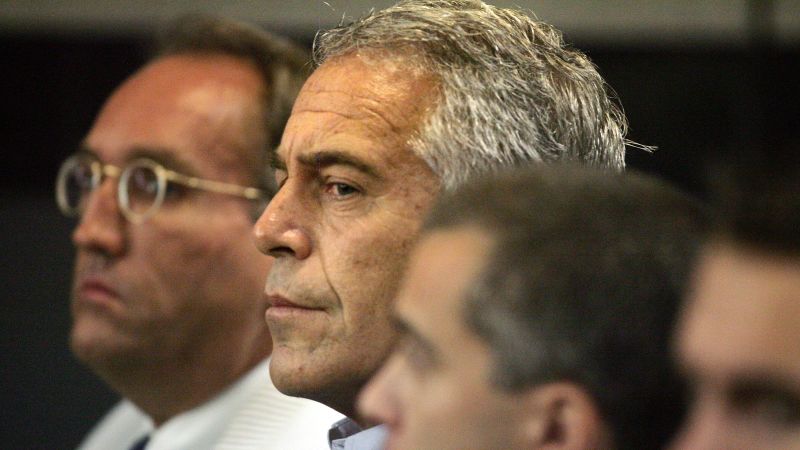The relationship between former President Donald Trump and the late financier Jeffrey Epstein has long been a topic of intrigue and controversy. Recently, Trump seemed eager to distance himself from the fallout regarding Epstein’s actions and their implications. However, instead of clarifying matters, his recent comments appear to complicate the narrative further. The ongoing ambiguity surrounding their association, particularly relating to Epstein’s misconduct, raises significant questions about Trump’s knowledge and awareness of these acts.
In a statement, Trump indicated that his split with Epstein stemmed from the latter allegedly hiring two employees from Mar-a-Lago, his celebrated private club in Florida. This admission seems to have sparked further skepticism about the nature of their professional relationship and deepens concerns about whether Trump had prior knowledge of Epstein’s notorious behavior. Despite the absence of formal allegations against Trump concerning Epstein’s conduct, the implications of his statements could challenge his image of being forthright.
As Trump took to Air Force One after a trip to Scotland, he affirmed the claim that young women from his club’s spa were poached by Epstein. This revelation not only contradicted earlier statements where he did not identify these employees as young women but also diverges from the White House’s previous claims. The administration had previously stated that Trump had banned Epstein for being “creepy.” Trump’s statements imply ongoing confusion regarding the reasons behind their fallout; a situation compounded by reports suggesting a financial rivalry over a property deal in Palm Beach might have contributed to the estrangement as well.
Importantly, this tangled history is further complicated by Trump’s uncharacteristic reluctance to discuss the nature of their falling out back in 2019. At the time, in light of Epstein’s arrest on sex trafficking charges, Trump stated that the reason behind their split did not merit discussion. However, it appears that the public now finds this explanation more contentious, necessitating clarity which Trump seems unwilling to provide. The complexities of their relationship and the various narratives that have emerged from Trump’s changing accounts raise an array of questions.
During a recent press engagement, Trump elaborated that Epstein had, indeed, poached multiple employees from Mar-a-Lago, despite being warned against such conduct. He elucidated, “I said, ‘Listen, we don’t want you taking our people,’” referencing his intention to maintain professional decorum within the club. However, the acknowledgment that one of Epstein’s alleged victims, Virginia Giuffre, may have been among those employees he claimed Epstein took casts a pall over Trump’s narrative. By recognizing her presence, he draws a direct line between his past associations and Epstein’s illicit activities, raising ethical concerns about his previously vague statements.
Further delving into Trump’s historical comments regarding Epstein, contrasting statements complicate the narrative even more. There exists a backdrop of Trump’s seemingly nonchalant remarks about Epstein’s fondness for younger women, which he referred to in a past interview. This casual acknowledgment prompts scrutiny on the extent of Trump’s awareness of Epstein’s behavior, especially given the testimony of acquaintances who had previously expressed concerns about Epstein’s predilections. These remarks and testimonies create a portrait of a complex relationship that may not have been as innocuous as Trump purports.
Adding to the layers of perplexity, media sources describe various incidents which outline a more intense apprehension towards Epstein, suggesting that Trump responded to behaviors that could jeopardize his own brand. Some accounts indicate that he distanced himself from Epstein after the latter was accused of making advances toward a member’s teenage daughter, compelling Trump to consider the implications for his reputation.
As this intricate narrative unfolds, it invites ongoing examination. There remains a crucial timeline of events that could potentially implicate Trump in early awareness of Epstein’s predatory actions. The grappling with such revelations produces lingering questions, emphasizing a need for further elucidation to disentangle fact from speculation. Trump’s reluctance to engage fully with these truths only serves to pique public curiosity, thereby ensuring the saga of his relationship with Epstein remains in the limelight. As inquiries about his knowledge persist, it calls into question whether Trump’s disconnect over friendships with troubling figures might have unforeseen repercussions impacting not only his legacy but also broader discussions on accountability.











